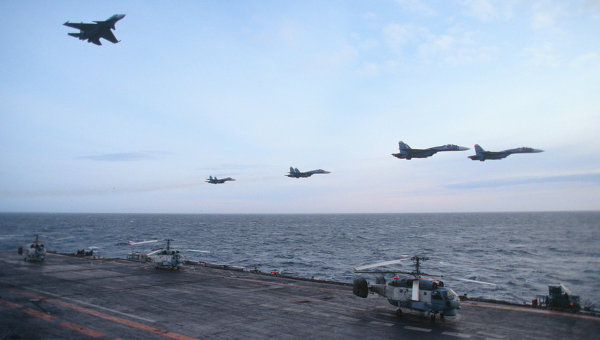
Russia is forming a new Northern Fleet-Unified Strategic Command dedicated to protecting its interests in the Arctic Circle before the end of 2014, RIA Novosti reported on Monday.
“The new command will comprise the Northern Fleet, Arctic warfare brigades, air force and air defense units as well as additional administrative structures,” a source on the Russian general staff told the state news agency.
The Northern Fleet-Unified Strategic Command will be responsible for protecting Russian shipping, fisheries, oil and gas fields on the Arctic shelf, according to RIA Novosti. The new command will also protect Russia’s northern borders.
Setting up the new military command is part of a larger Russian move to boost its presence in the Arctic. Russia has already begun construction of a new early warning radar station in the region. Further, Russia has begun deploying air defense units to the Arctic and will reactivate several air and naval bases in the region that had been mothballed since shortly after the collapse of the Soviet Union.
The increased Russian military presence comes as countries in the region–including Russia, Canada, the U.S., Norway and the Denmark–are making competing claims on the Arctic seabed. The Arctic is expected to contain a bounty in untapped oil and gas reserves that will become accessible as the polar icecaps recede.
Russia and Canada have been the most aggressive in staking their competing claims to the continental shelves—particularly with regard to the Lomonosov Ridge.
In 2007 a Russian expedition that was gathering scientific data to back-up their national claims placed a Russian-flag on the seabed on the North Pole.
In 2013, Canada made too made a claim to a vast stretch of Arctic territory, which is likely to overlap with Russian, Danish and American claims.
While the Russian and Canadian claims are being made under the auspices of the U.N. Convention on the Law of the Sea, the U.S. is at somewhat of a disadvantage having never ratified the treaty.





